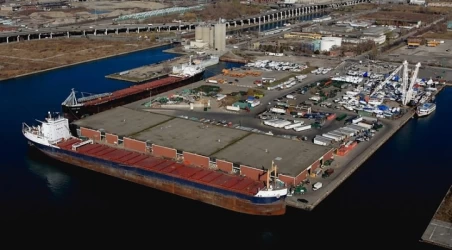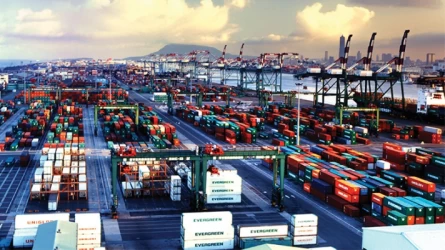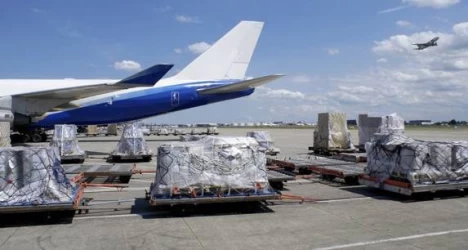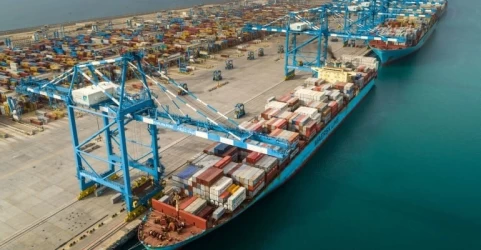Guide to doing business with Tanzania, sea freight
Tanzania, located in East Africa, is a country rich in natural resources, with a diverse economy that is gradually expanding. As a gateway to various markets in the region, Tanzania offers significant opportunities for international trade, particularly in sectors such as agriculture, mining, tourism, and manufacturing. This guide provides a comprehensive overview of doing business with Tanzania, focusing on the essentials of maritime transportation.
1. Overview of Tanzania’s Economy
Tanzania is one of the fastest-growing economies in Africa, with a population exceeding 60 million. The country boasts abundant natural resources, including minerals (gold, diamonds, and tanzanite), natural gas, and fertile agricultural land. The economy is primarily based on agriculture, which accounts for about 25% of the Gross Domestic Product (GDP) and employs around 75% of the workforce. The key agricultural products include coffee, tea, tobacco, and various fruits.
The mining sector has also gained momentum, with Tanzania emerging as a significant gold producer in Africa. Furthermore, the government has implemented several reforms to enhance the business environment, making it more attractive for foreign investors.
2. Business Environment in Tanzania
The Tanzanian government has taken substantial steps to improve its business environment, aiming to attract foreign direct investment (FDI). Some of the notable initiatives include:
- Investment Policy: The government has introduced favorable policies and incentives to encourage investment, including tax holidays, exemptions, and streamlined processes for obtaining licenses.
- Ease of Doing Business: Efforts have been made to reduce bureaucracy and simplify administrative procedures, although challenges still exist.
- Infrastructure Development: Ongoing investments in infrastructure, such as roads, railways, and ports, are enhancing the country's logistical capabilities and business attractiveness.
3. Key Sectors for Investment
Agriculture
The agricultural sector presents vast opportunities, particularly in the production and export of cash crops. Investments in modern farming techniques, processing facilities, and supply chain management can yield significant returns.
Mining
With its rich mineral deposits, including gold, diamonds, and various gemstones, Tanzania offers lucrative opportunities in the mining sector. Foreign investors can engage in exploration, extraction, and processing.
Tourism
Tanzania is home to world-renowned attractions such as Mount Kilimanjaro, Serengeti National Park, and Zanzibar. Investments in hotels, resorts, and travel services can capitalize on the growing tourism sector.
Manufacturing
The government encourages the growth of the manufacturing sector to reduce reliance on imports. Opportunities exist in food processing, textiles, and consumer goods production.
4. Challenges in Doing Business
Despite the numerous opportunities, there are challenges that foreign investors may face in Tanzania:
- Bureaucratic Hurdles: While improvements have been made, bureaucratic inefficiencies and lengthy administrative processes can still pose challenges.
- Infrastructure Gaps: Although infrastructure development is ongoing, some regions may still lack adequate facilities, which can hinder logistics and operations.
- Market Competition: The Tanzanian market can be competitive, especially in sectors like agriculture and mining, where local businesses may have established networks.
5. Maritime Transportation in Tanzania
Maritime transportation plays a crucial role in facilitating trade with Tanzania. The country has several major ports that serve as gateways for imports and exports.
Major Ports
- Port of Dar es Salaam: As the largest port in Tanzania, it is a critical hub for shipping and trade, handling a significant portion of the country’s imports and exports. The port connects to various international shipping lines and serves as a transit point for landlocked countries like Rwanda, Burundi, and Uganda.
- Port of Tanga: Located in the northern part of the country, Tanga port handles bulk cargo and serves both domestic and regional trade.
- Port of Mtwara: This port is essential for the southern regions of Tanzania and provides access to neighboring countries.
Advantages of Maritime Transportation
- Cost-Effectiveness: Maritime shipping is generally more economical than air freight, especially for bulk goods and large volumes of cargo.
- Access to Regional Markets: The ports in Tanzania facilitate access to regional markets, enabling exporters to reach customers in landlocked neighboring countries.
- Established Shipping Routes: With established shipping routes and connections to major international ports, maritime transport offers reliable logistics solutions.
Challenges of Maritime Transportation
- Port Congestion: The Port of Dar es Salaam often experiences congestion, leading to delays in the unloading and loading of cargo.
- Quality of Port Services: In some instances, the quality of services provided at the ports may not meet international standards, impacting the efficiency of operations.
- Regulatory Compliance: Importers and exporters must comply with local regulations, including customs duties and documentation requirements, which can be complex.
6. Import and Export Regulations
Understanding the import and export regulations in Tanzania is vital for successful trade:
- Company Registration: Foreign companies must register with the Business Registration and Licensing Authority (BRELA) and obtain necessary licenses.
- Customs Procedures: All imported goods must go through customs clearance. Importers are required to provide documentation, including a bill of lading, commercial invoice, and certificate of origin.
- Tariffs and Taxes: Tanzania imposes tariffs on imported goods, and understanding these costs is essential for pricing strategies.
7. Conclusion
Tanzania presents a wealth of opportunities for international trade, supported by a growing economy and strategic location in East Africa. Understanding the local business environment, leveraging maritime transportation, and navigating regulatory frameworks are crucial for success in this dynamic market. By capitalizing on the available resources and adhering to local regulations, businesses can establish a successful presence in Tanzania.
If you have any specific questions or need further assistance, feel free to ask!











